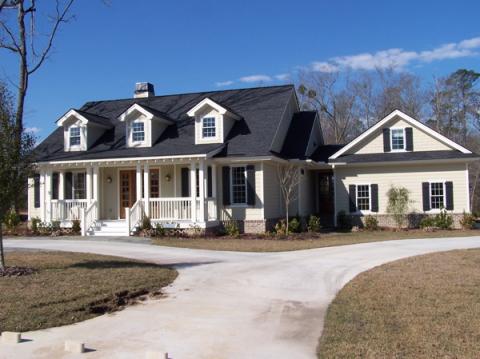No need to weep for me, if you feel tempted to do so. After all, I made a few dollars. The underlying point in all this is that you don't go poor making money. Which brings me around to the current real estate market and whether
I understand the psychology of the moment for many homeowners; I am none too happy that the market value of my primary home in Connecticut is down at least 15% in the last 18 months or so. But we bought the house 16 years ago, and put a nice chunk of money down. If it weren't for a daughter still in high school, we would be having a serious discussion about taking what the market gives and moving to our second home in South Carolina. As it is, we are slowly starting to identify things to take to the dump or consider listing things on eBay.
Fast forward a few years, with our kids off to school, and it makes no sense to stay in a too-large house for two people, with all the attendant costs, no matter how much market value has been taken from us by this dreadful economy. The housing issues stretch across the nation and, with only rare exceptions, every real estate market is down -- the ones we live in and the ones we would move to. Chances are that if our home has lost 15% of its value, the next one we move to will have lost something of that magnitude as well.
Conclusion: It doesn't really matter if the fair (i.e. market) price you can get for your house doesn't meet your notion of what it is truly worth. It is worth only what someone else will pay for it (blindingly obvious point that). The person you buy your next home from, whether a developer or private owner, is going to be suffering some of the same pangs, and if they must sell -- either to keep their company afloat or because some life situation forces them to -- you will get a better deal than the people buying your primary home.
This is a long way around to say what I have said here before: If you have equity in your home and no other financial impediments to selling, and your dream is to have a home on the golf course (or near it), there is no better time than today...or yesterday...or tomorrow. Just consider it your home, not an investment.
























